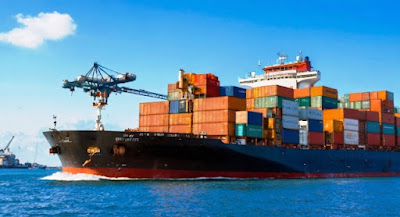Navigating Safe Passage: The Role of Shipping Insurance in Delivery Services

In the fast-paced world of global commerce, shipping plays a vital role in the movement of goods from manufacturers to consumers. However, the journey from sender to recipient is not without its risks. From unforeseen accidents to natural disasters, various factors can potentially disrupt the delivery process and jeopardize the safety of shipments.
This is where shipping insurance comes into play, providing protection and peace of mind to both shippers and recipients. In this article, we'll explore the significance of shipping insurance in delivery services and how it ensures the safe passage of goods from point A to point B.
Understanding Shipping Insurance
Shipping insurance, also known as cargo insurance or freight insurance, is a type of coverage that protects shipments against loss, damage, or theft during transit. It provides financial compensation to shippers or recipients in the event that their goods are damaged, lost, or stolen while in the custody of a shipping carrier.
Shipping insurance can cover various modes of transportation, including sea freight, air freight, rail freight, and trucking, as well as domestic and international shipments.
The Role of Shipping Insurance in Delivery Services
Risk Mitigation: Shipping insurance plays a crucial role in mitigating the risks associated with transporting goods from one location to another. Despite the best efforts of shipping carriers to ensure the safe and timely delivery of shipments, accidents and unforeseen events can occur. Shipping insurance provides a safety net, allowing shippers and recipients to recover financially in the event of loss or damage to their goods.
Protection of Investment: For businesses and individuals shipping valuable or high-cost items, shipping insurance protects their investment by providing compensation for any losses incurred during transit. Whether it's electronics, jewelry, artwork, or perishable goods, shipping insurance safeguards the value of the shipped items and minimizes the financial impact of unforeseen incidents.
Peace of Mind: Shipping insurance offers peace of mind to both shippers and recipients, knowing that their goods are protected against loss or damage during transit. This peace of mind allows businesses to focus on serving their customers and fulfilling orders without worrying about potential losses or liabilities resulting from shipping mishaps.
Customer Satisfaction: For businesses that rely on delivery services to fulfill customer orders, offering shipping insurance can enhance customer satisfaction and loyalty. By providing assurance that their purchases are protected in transit, businesses build trust with their customers and demonstrate a commitment to delivering goods safely and securely.
Legal Compliance: In some cases, shipping insurance may be required by law or regulation, especially for certain types of goods or when shipping internationally. Compliance with insurance requirements helps businesses avoid legal penalties and ensures that shipments are adequately protected throughout the delivery process.
Types of Shipping Insurance Coverage
Shipping insurance coverage can vary depending on the insurance provider, the terms of the policy, and the specific needs of the shipper or recipient. Some common types of shipping insurance coverage include:
All-Risk Coverage: All-risk coverage provides the most comprehensive protection for shipments, covering loss, damage, or theft from any external cause during transit. This type of coverage typically excludes only specific perils or circumstances explicitly listed in the policy.
Named Perils Coverage: Named perils coverage offers protection against specific risks or perils explicitly listed in the policy, such as fire, theft, collision, or natural disasters. This type of coverage may be more limited than all-risk coverage but can be tailored to address specific concerns or risks associated with the shipment.
Valuation Coverage: Valuation coverage allows shippers to declare the value of their goods and insure them for that amount. In the event of loss or damage, the insurance provider will compensate the shipper based on the declared value of the goods, up to the coverage limit specified in the policy.
Excess Liability Coverage: Excess liability coverage provides additional coverage beyond the limits of primary insurance policies held by shipping carriers. It serves as a secondary layer of protection, filling gaps in coverage and providing additional financial security for shippers and recipients.
Choosing the Right Shipping Insurance
When selecting shipping insurance for your shipments, consider the following factors:
Coverage Options: Evaluate the coverage options offered by insurance providers, including all-risk coverage, named perils coverage, and valuation coverage. Choose a policy that aligns with your specific needs and concerns regarding shipment protection.
Coverage Limits: Review the coverage limits and deductibles associated with shipping insurance policies. Ensure that the coverage limits are sufficient to protect the value of your shipments and that the deductibles are reasonable and manageable.
Insurance Provider Reputation: Research the reputation and track record of insurance providers offering shipping insurance. Choose a reputable provider with a history of prompt claims processing and reliable customer service to ensure a positive experience in the event of a claim.
Cost Considerations: Compare the costs of shipping insurance policies from different providers to find the best value for your money. Consider factors such as coverage options, coverage limits, deductibles, and any additional fees or surcharges associated with the policy.
Policy Terms and Conditions: Read the terms and conditions of shipping insurance policies carefully to understand the coverage exclusions, limitations, and requirements. Pay attention to any specific conditions or requirements that must be met to qualify for coverage, such as proper packaging, documentation, or notification procedures.
Conclusion
Shipping insurance plays a crucial role in ensuring the safe and secure transportation of goods from sender to recipient. By providing protection against loss, damage, or theft during transit, shipping insurance offers peace of mind to shippers and recipients and safeguards their investments in the shipping process.
Whether shipping domestically or internationally, businesses and individuals can benefit from the financial security and risk mitigation provided by shipping insurance. By choosing the right coverage options and insurance provider, shippers and recipients can navigate the complexities of shipping with confidence and assurance in the safe passage of their goods.
Post a Comment for "Navigating Safe Passage: The Role of Shipping Insurance in Delivery Services"